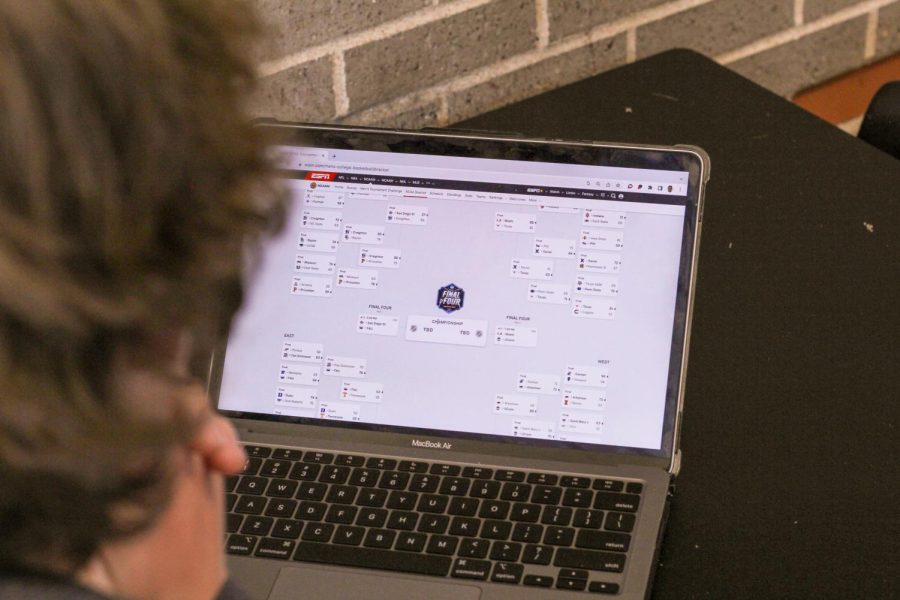OPINION: March Madness—The Ultimate Bracket Buster
The March Madness bracket phenomenon began in 1977, and has been a fascinating staple in the sports world ever since. What goes into a “perfect bracket?”
March 31, 2023
Around 60 million Americans fill out their March Madness brackets annually, many of them joining bracket competitions. Whether it’s serious or for fun, everyone gives their best shot at predicting as many games as they can.
Want a perfect bracket? That’s a pretty tall order; no one has ever been able to pull it off. The math suggests that it’s practically impossible.
The odds come out to be around one in 9,223,372,036,854,775,80 or 9.2 quintillion. It is hard to grasp such a number — 9.2 quintillion seconds would be about 292 billion years. ESPN suggests that even if you have a fair amount of basketball knowledge, your odds lie around one in 120 billion.
Even though a perfect bracket isn’t likely, there are still ways to win big in bracket competitions. You just have to rack up the most points in your pool.
When trying for a good March Madness bracket, a few things come into play: analytics, experience, upsets and most importantly, a lot of luck.
First things first: the best teams are ranked highly for a reason, especially one and two seeds. Those teams simply have the best resume with the most talent. Since 1979, one seeds have accounted for 40% of total Final Four appearances. Powerhouse teams are likely to stick around for a bit.
From there, analytics can help convince you which teams to take far. Statistician Ken Pomeroy’s “KenPom” rankings are a great tool for this. Look not only for teams with good offensive efficiency, but great defensive teams. Defense is reliable and can turn into quick offense on the other end.
An experienced team with a good coach is a recipe for success. When looking at previous Final Four teams from the past ten years, almost all of them had an average roster experience around at least 2.5 years. When paired with a proven, seasoned coach, that team is likely to handle adversity much better.
March Madness has earned its name. The annual average for upsets lies around 12.4. Predicting an upset is an awesome feeling, but going overboard on them may just ruin your bracket. A more common and exciting upset are the 12 vs. 5 seed games.
Historically, 5 seeds boast only a 64% win rate when facing a 12 seed — that’s significantly lower than other upset chances with a similar seed pairing. The 12 seeds in the tournament are typically the strongest mid-major teams who face off against weaker power-5 teams in the first round. If an upset looks intriguing, trust your gut. They are high risk, but have large upside and can make your bracket a winning one.
Regardless of how passionate you are, don’t sweat your bracket. The majority of victors win bragging rights and perhaps a little cash; however, if you happen to strike a perfect bracket, make sure to let Warren Buffett know. The businessman will pay $1 billion to anyone that can predict every game correctly.








